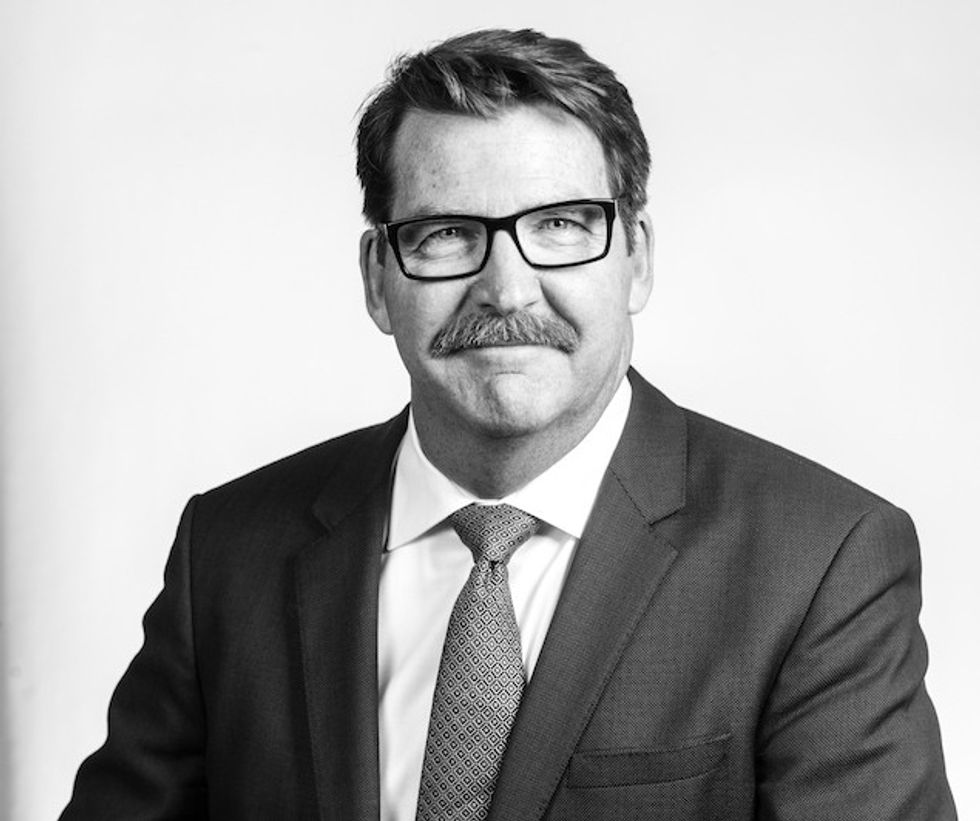Next month’s planned meeting between US President Joe Biden and Russian President Vladimir Putin is expected to include conversations on Ukraine, COVID-19 and the recent diversion of a flight by officials in Belarus, but as tensions between the two countries remain tense, there are bigger issues at play, like the hacking of the Colonial Pipeline, SolarWinds, election interference, disinformation campaigns and of course, targeted assassinations in the UK and elsewhere.
There is little disagreement that with emerging technology and a host of geopolitical developments, the relationship has changed so US collection efforts on Russia need to change as well.
The Cipher Brief tapped two former senior CIA officers with decades of experience on Russia to talk about what Putin really wants and what should come next in the US-Russia relationship.
This brief was part of The Cipher Brief’s International Summit, co-hosted by Cipher brief CEO Suzanne Kelly and Senior Member of the British Foreign Office Nick Fishwick. The conversation has been edited for length and clarity. You can also watch the full brief on The Cipher Brief YouTube channel.
Paul Kolbe, Former Senior CIA Officer

Cipher Brief Expert Paul Kolbe is Director of The Intelligence Project at Harvard University’s Belfer Center for Science and International Affairs. Prior to this, Kolbe led BP’s global Intelligence and Analysis team and before that, he served 25 years as an operations officer in the CIA.
Daniel Hoffman, Former Senior CIA Officer

Cipher Brief Expert Daniel Hoffman is a former Chief of Station with the Central Intelligence Agency. His combined 30 years of distinguished government service included high-level positions in the former Soviet Union, Europe, and war zones in both the Middle East and South Asia. He is currently a FOX News Contributor.
Kolbe: Let’s start with some myth busting. We can be quick to fall into the old paradigm that we’re fighting a new Cold War with Russia, that we are back in conflict with the Soviet Union. But for a bunch of reasons, we're not in a new Cold War. It's not an ideological struggle. It's not an economic struggle. Russia poses no economic challenge in terms of fundamental systems. And it’s not just about Putin. While he's driving many things, he represents just the tip of the iceberg, which is largely in line with his policies and his worldview.
Russia is not a fragile country. We're constantly saying, ‘well, Russia is fragile. It's a declining power. It faces democratic demographic problems.’ It is enormously powerful and surprisingly resilient in many different ways.
And another myth: that Putin is just a clever tactician. Well, no, he's actually proved himself to be a much better strategist than just about everyone in the U.S. Government across administrations. He has sustained his influence over 20 years, and through five different administrations and he has remained remarkably consistent in his goal to restore Russian power, and to degrade a unipolar world, as he sees it. He has been able to drive wedges between allies to maximize his own power and allow Russia to form alliances of convenience. So, I think that means there's a very different set of requirements that the intelligence community and the national security community needs to address that are very different from those that we addressed during the Cold War.
Hoffman: Russia is a revisionist power. The Kremlin is trying to reshape what we like to call the international rules-based order, consistent with its authoritarian model. And in order to guarantee his regime security, Russia is entering into what is probably a decades-long partnership with China. There are lots of areas of potential strategic conflict with China, including in Central Eurasia and the Arctic among other places, but for now, they see value in partnering to counter the United States.
Let’s look at what happened with the Colonial Pipeline, which is a key intelligence requirement for our Intelligence Community. There is a spectrum of possible explanations, which ranges from the Kremlin knowing about the existence of the Dark Side hacking group to knowing about the hack or ordering it to take place.
I almost liken it to al Qaeda homesteading in ungoverned space in Afghanistan before 9/11. If you listen to an international lawyer, they'll tell you that if DarkSide is enjoying ungoverned space in Russia, so the Kremlin should held accountable at the very least for allowing them to operate from their territory. It is a big issue for the United States IC because DarkSide hit our critical infrastructure.
In terms of policy, I would just say that with Russia we’re looking at a Venn diagram where there's some shaded space, where our interests coincide, a lot of unshaded space where they do not, and some grey areas, where there is an opportunity for diplomacy. We've already seen the extension of the new START agreement. Arms control is one area where we can and do work on together. I think the Biden Administration would like to work on climate change and maybe counterterrorism, including Afghanistan. The opium trade flows to Russia. That's a major problem for them, even though they were providing material support to the Taliban, the Kremlin might be open to working with the U.S.
Vladimir Putin does find it useful to create the image of a bipolar world, which was one reason he wanted a summit with President Biden. It enhances his stature. Russia's GDP is the size of Italy's.It is critically important for the IC to collect on Putin’s plans and intentions. Open source reporting will not cut it.
The Cipher Brief: How might this impact that we are seeing from Russia create new IC requirements in the future?
Kolbe: I'm breaking requirements into three new areas. Of course, there are the traditional areas. Counterintelligence is an enduring requirement with Russia. And, military capability, new weapons systems, et cetera. I will note that we've probably degraded many resources that had been focused on that over the decades and we are probably scrambling to rebuild them now. Of course, plans and intentions is always a standing requirements. As Dan said, we require quite particular resources. But I'd add to that, three new areas to focus on and I lump them into matrix buckets.
One is Russia's corrosive operations. I’d put under that, disinformation and truth decay. This includes Russia’s fabulously successful efforts to inject doubt, to inject falsehoods, to inject alternate narratives into both domestic and international narratives.
Then I'd add to that cyber operations. Dan correctly addressed that right off the top. The ability to have both direct impact for example the SolarWinds attack, and direct state sponsored attacks on both traditional and non-traditional targets in both the government and the private sector. And then indirect operations like we saw with the Colonial Pipeline hack. It’s possible that attack could be traced back to an order from the Kremlin. But I suspect that this was an entrepreneurial operation, that is facilitated and enabled by a regime that is perfectly happy to have these folks sitting there. And probably folks in FSB or SVR or GRU. taking a cut of the proceeds. I suspect there's a finder's fee for feeding them particular information targets. But also, there is plausible deniability in that.
There's a second bucket of the threat matrix that I'd call disruptive targets. These are frozen conflicts, and the ability to dial up and dial down pressure and tension as the Kremlin sees fit. And that's combined with their expeditionary operations in Syria, Libya, Central African Republic, and now Mozambique. And other areas where you see them using unconventional capabilities in a quite facile way to establish influence or to support old friends and to remain consistent in that.
And then the final bucket I'd put in is the values bucket, where Putin is quite explicitly portraying Russia as a defender of Orthodox Christendom and traditional values. All of which supports autocracy, manifests in intolerance and manifests in repression. This cuts directly counter to the Western liberal democratic values. And moreover, using the West’s own tools of social media and open societies against them. This will require a whole new collection and analysis paradigm.










